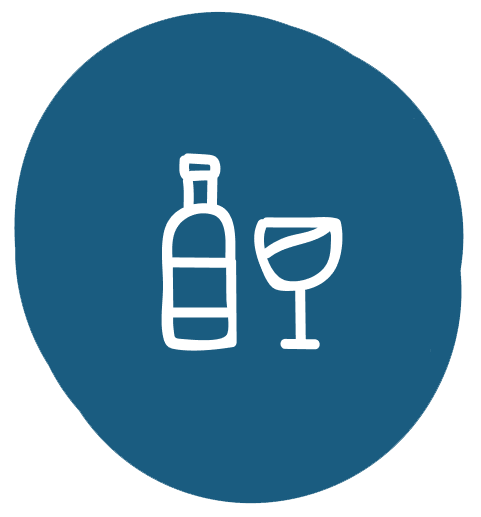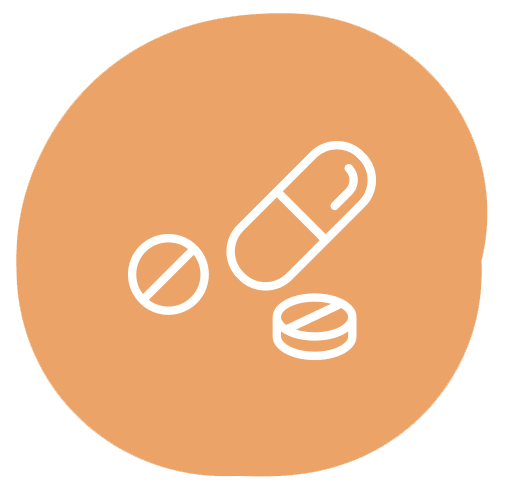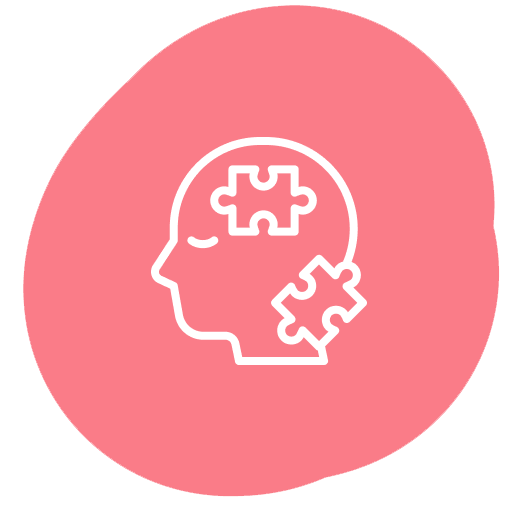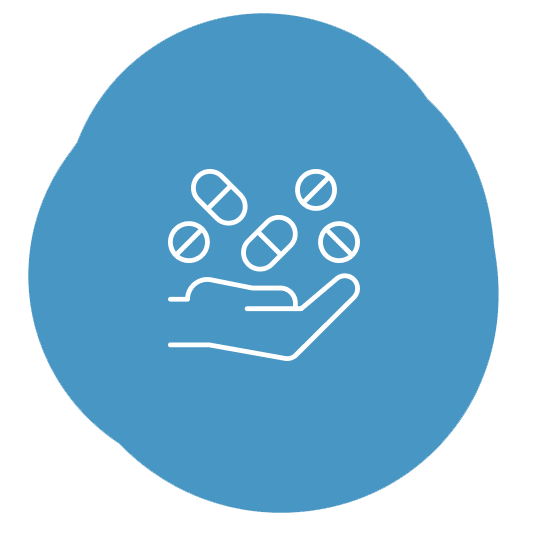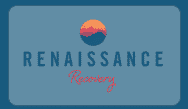Renaissance Recovery
Effective treatment for addiction, founded by people in recovery.
Treatment for Every
Level of Care
From detox to aftercare, each step in addiction treatment is crucial. Our drug and alcohol rehab offers comprehensive care through our programs & partnerships, ensuring a seamless & effective recovery journey.
Detox
The first step in addiction treatment, detox typically lasts 3-10 days & provides a safe, medically supervised environment to get through any painful or potentially dangerous withdrawal symptoms.
Inpatient Residential Treatment
Inpatient rehab typically lasts 20-25 days & provides therapeutic modalities to identify the root causes of substance abuse with expert-led individual & group therapies in a residential setting.
Outpatient Program (OP)
A less intensive version of IOP, outpatient programming is typically only about 1 hr/day, allowing clients to fully return to their regular lives, while still maintaining a degree of accountability and the support of a community.
Intensive Outpatient Program (IOP)
An IOP is typically only a few hours a day, and allows clients to begin returning to their daily lives & work schedules, while still having the ongoing support of a clinical team.
Partial Hospitalization Program (PHP)
A PHP provides treatment in a supervised environment with fewer clinical hours and more freedom than inpatient care, giving clients the space to begin applying their new recovery skills in the outside world.
Sober Living
Sober living offers a supportive environment where individuals can transition back into their daily routines and responsibilities, while maintaining a structured and sober lifestyle.
The first step in addiction treatment, detox typically lasts 3-10 days & provides a safe, medically supervised environment to get through any painful or potentially dangerous withdrawal symptoms.
Inpatient rehab typically lasts 20-25 days & provides therapeutic modalities to identify the root causes of substance abuse with expert-led individual & group therapies in a residential setting.
A less intensive version of IOP, outpatient programming is typically only about 1 hr/day, allowing clients to fully return to their regular lives, while still maintaining a degree of accountability and the support of a community.
An IOP is typically only a few hours a day, and allows clients to begin returning to their daily lives & work schedules, while still having the ongoing support of a clinical team.
A PHP provides treatment in a supervised environment with fewer clinical hours and more freedom than inpatient care, giving clients the space to begin applying their new recovery skills in the outside world.
Sober living offers a supportive environment where individuals can transition back into their daily routines and responsibilities, while maintaining a structured and sober lifestyle.
Renaissance Recovery's Addiction
Treatment Centers
When you come to Renaissance Recovery, you’ll be greeted by a welcoming staff & vibrant sober community. Our founders & many of our staff have been through recovery themselves, creating an environment of meaningful support & understanding as you go through treatment.
With our prime coastal locations, you’ll also have frequent opportunities for outings to world-renowned beaches & surrounding areas, where we take clients hiking, surfing, downtown, & more.
What We Treat at Renaissance Recovery

Evidence-Based Treatments

Our evidence-based treatment programs, administered by trained professionals, ensure effectiveness proven through studies and clinical trials to promote successful long-term recovery.
Swipe to learn more about our effective treatments.

Dual Diagnosis

Dual Diagnosis addresses the common root cause of substance abuse – mental health. Treating both simultaneously, it offers the most effective solution for those grappling with both conditions.

Dialectical Behavior Therapy (DBT)

DBT is a cognitive therapy that focuses on acceptance and change, teaching skills to help regulate intense emotions, improve relationships, control impulsive behavior, & become more present.

Holistic Therapy

Holistic therapies provide a comprehensive approach to healing by addressing physical, mental, emotional, and spiritual well-being with art therapy, adventure therapy, meditation, & more.

Medication-Assisted Treatment (MAT)

MAT, combined with counseling, eases the transition from substance use to sobriety. Prescribed medication in a supportive environment ensures a more comfortable and effective recovery process for clients.

Cognitive-Behavioral Therapy (CBT)

CBT is a highly effective therapy that helps to alleviate the symptoms of mental health disorders and addresses any underlying causes of addiction, leading to sustainable recovery.

Warriors Way

Warrior’s Way, a holistic group therapy, fuels personal transformation, prioritizing mind-body-spirit connection in a secure space, using meditation and mindfulness for growth.
Victoria R. - Alumni
I wasn’t even a patient here yet, I just showed a small interest in wanting to get help and Caitlin was in the middle of doing something and she dropped what she was doing to meet me.
She genuinely cared. It wasn’t like I was just another number on a statistic of getting help.
What I was given from Renaissance is what helped save my life.”
Keisha Simon
The benefits of sobriety…it’s allowed me to live, and to live a life I could not have imagined. I get to look at myself in the mirror and be proud of who I am. My past is exactly what it is, but I beat it. Coming through this program is what allowed me to do that.”

Alijah Lott - Alumni
In his own words: “Renaissance has influenced my recovery by offering such a supportive community to get sober in. All of the staff, and the structure of the program, was instrumental to my continued success. The key is progress, nobody is perfect.”
Experience life free from addiction.
Renaissance Recovery’s Prime Coastal Locations
With prime coastal locations on both the West and East coasts, Renaissance Recovery offers effective and relaxing treatment programs in two unique settings.
If you’re not sure which is the best fit for you, take a look at the individual benefits each location has to offer.

Our California Rehab
Our Orange County, California location offers a thriving local sober community, temperate year-round weather, and exquisite beaches nearby.
Take a drive up the famous Pacific Coast Highway for a relaxing day surrounded by nature and walkable seaside shops, art galleries, and restaurants, or spend the day surfing or fishing off the Huntington Beach pier.
Our California location offers a serene and fun place to reset and recover as you attend our treatment program.

Our Florida Rehab
Located in Palm Beach right near the shoreline, our Florida location offers warm, year-round sunshine in a charming upscale community.
Known for its excellent fishing, art galleries, world-renowned golf courses, and excellent shopping, this area provides a wonderful backdrop for rest and relaxation on your journey to recovery.
Our Florida rehab location will provide you with exciting activities and a beautiful natural environment as you complete treatment at Renaissance Recovery.
Why Choose Our Addiction Treatment Centers?
Founded by people in recovery, our addiction treatment program was created from the perspective of people who have been in your shoes before. With an environment of sober staff & leadership who understand what you’re going through, our clients are welcomed with open arms by staff that genuinely cares for each person who walks through our doors.
Beyond our supportive atmosphere, our program also includes great amenities such as:
Community Building
Activities

Group Therapy
Sessions

Recreational
Outings

Strong Alumni
Program

Our Addiction Treatment Center's Amenities
Hover over each activity to learn more.

Surfing

Hiking

Restaurants & Shops

State Parks

Boating
Our local downtown is a vibrant and fun area, offering a variety of restaurants and shops that include delicious seafood, farmers markets, cafes and bakeries, art galleries, boutiques, & much more.
A global hub for surfers of all skill levels, our Southern California beaches are an incredible place to surf and enjoy the peaceful, natural environment during your recovery.
Hiking in Southern California is a popular local activity that offers a wide range of trails and experiences, and is a great activity to promote mental and emotional wellbeing.
Our treatment center is conveniently located near several state parks that offer a variety of outdoor recreational activities, natural beauty, and opportunities to explore the local environment.
Whether you’re interested in sailing, power boating, fishing, or simply cruising along the coast, there are opportunities to enjoy boating in our local area.
A global hub for surfers of all skill levels, our Southern California beaches are an incredible place to surf and enjoy the peaceful, natural environment during your recovery.
Hiking in Southern California is a popular local activity that offers a wide range of trails and experiences, and is a great activity to promote mental and emotional wellbeing.
Our local downtown is a vibrant and fun area, offering a variety of restaurants and shops that include delicious seafood, farmers markets, cafes and bakeries, art galleries, boutiques, & much more.
Our treatment center is conveniently located near several state parks that offer a variety of outdoor recreational activities, natural beauty, and opportunities to explore the local environment.
Whether you’re interested in sailing, power boating, fishing, or simply cruising along the coast, there are opportunities to enjoy boating in our local area.
FOLLOW US ON SOCIAL
@renaissancerecovery
Substance Abuse Treatment FAQs
Drug rehab typically involves residential treatment, while outpatient drug rehab allows individuals to receive treatment while living at home. Outpatient programs offer flexibility in scheduling and daily life, making them appropriate for those who don’t require 24/7 supervision.
The time spent in long-term substance abuse treatment varies, but it often lasts for several months to a year. The length depends on individual needs and progress, intending to provide comprehensive support for sustained recovery.
Yes, there are alcohol rehab centers specifically designed to address alcohol addiction. These centers offer specialized programs and therapies tailored to the unique challenges of alcoholism, providing a focused approach to recovery.
Addiction treatment centers offer a range of programs, including inpatient and outpatient options. These may involve counseling, group therapy, detoxification, and other evidence-based interventions to address both the physical and psychological aspects of addiction.
The effectiveness of outpatient substance abuse treatment depends on individual circumstances. While inpatient programs provide constant supervision, outpatient treatment offers flexibility and allows individuals to apply learned skills in their daily lives. The effectiveness varies based on the severity of addiction and the individual’s commitment to the recovery process.






